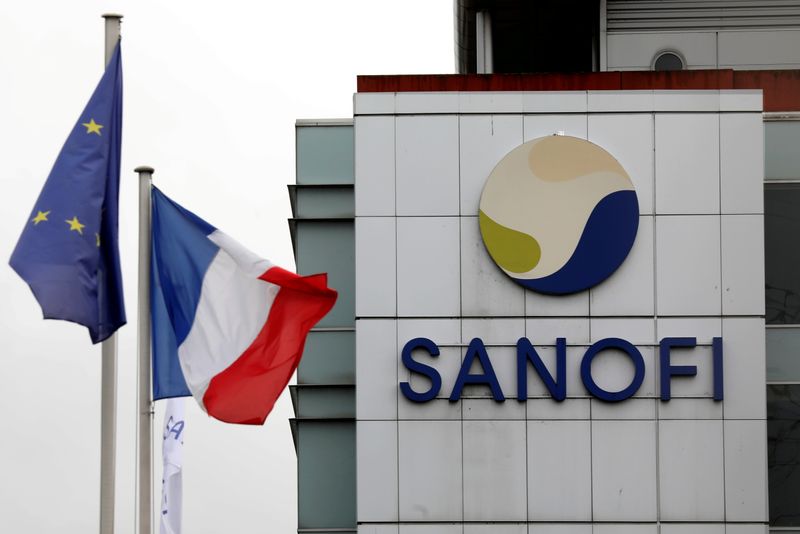This post was originally published on this site
https://i-invdn-com.akamaized.net/trkd-images/LYNXNPEG6Q14K_L.jpg
BRUSSELS/MILAN (Reuters) – European efforts to secure potential COVID-19 vaccines from Pfizer (N:PFE), Sanofi (PA:SASY) and Johnson & Johnson (N:JNJ) are mired in wrangles over price, payment method and potential liability costs, three EU officials told Reuters.
The bloc is in talks with at least six vaccine makers to acquire up front doses of potential shots against the novel coronavirus, officials told Reuters earlier in July, in a strategy meant to increase the chances of having COVID-19 vaccines for its population.
Despite the urgency to seal deals amid a global race to secure the most promising shots, the EU is struggling to reach swift agreements, said the officials, who are involved in the talks, and declined to be named because the negotiations are confidential.
The United States, meanwhile, has already inked two supply agreements with AstraZeneca (L:AZN) and Pfizer among other major funding deals.
The EU’s negotiations with Johnson & Johnson are among the most advanced but have yet to conclude amid a back-and-forth over how to share liability costs if the potential vaccine showed unexpected side-effects, two of the officials told Reuters.
Johnson & Johnson had no immediate comment.
France’s Sanofi is negotiating to supply 300 million doses of the potential vaccine it is developing with British drugmaker GlaxoSmithKline Plc (L:GSK) to the EU and wants an immediate upfront payment for the entire stock, two officials said.
But the EU wants to pay in tranches and delay some payments until the vaccine has passed large clinical trials, the officials said.
This has caused “some hurdles,” one of the officials said.
A spokesman for Sanofi declined to comment.
A spokesman for the Commission, which is leading EU talks with drugmakers, declined to comment.
Aside from the Pfizer, Sanofi and Johnson & Johnson discussions, the EU is also in talks with biotech companies Moderna (O:MRNA) and Germany’s CureVac, officials told Reuters earlier in July.
Moderna and CureVac were not immediately available to comment.
A deal with AstraZeneca (L:AZN) for its vaccine under development with Oxford University was struck by four large EU countries in June and is now about to be completed for the whole 27-nation bloc, officials said.
One official said the EU was seeking to seal three or four advance purchase deals.
“OVER BUDGET”
The most complex talks appear to be with Pfizer and BioNtech which are developing a vaccine using an experimental technology known as messenger RNA, or mRNA, which has not been approved for commercial use by medical authorities.
The two firms want the EU to pay them for 500 million doses only if their COVID-19 vaccine is authorised, one official told Reuters.
This might eliminate the EU’s risk of losing money should the shot prove unsuccessful. But the bloc fears that if it waits for the vaccine to be proved effective, the bill could be much higher and they risk going “over budget,” one of the officials said.
In a further potential complication, some EU negotiators have raised doubts about mRNA, which is also used in the potential COVID vaccines developed by Moderna and CureVac.
Pfizer and BioNtech are also discussing liability issues with EU negotiators, a fourth person familiar with the talks told Reuters.
Pfizer and BioNTech declined to comment.
The U.S. government last week agreed to pay nearly $2 billion to buy enough of the vaccine being developed by Pfizer and BioNTech to inoculate 50 million people, but with payments conditional on their vaccine being successful in large clinical trials.
The price agreed under that deal of nearly $40 per course of treatment is considered too high by the EU, officials told Reuters last week.
The EU is relying on about 2 billion euros ($2.3 billion) from an emergency fund to finance its possible deals with vaccine makers, which could be topped up with payments from EU governments.
For instance, the agreement with AstraZeneca initially negotiated by Germany, France, Italy and the Netherlands cost the four countries 750 million euros for 300 million doses of the potential shot, an Italian official said, with an option to buy a further 100 million doses.
That works out at 2.5 euros per dose.
It is not clear whether under ongoing talks that money will now be provided by the EU emergency fund.
($1 = 0.8581 euros)

